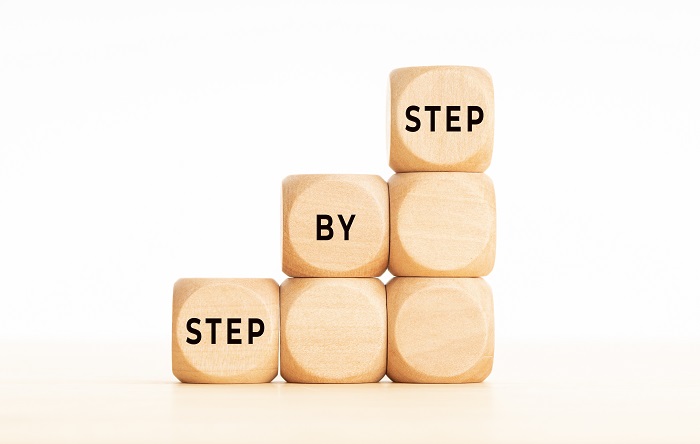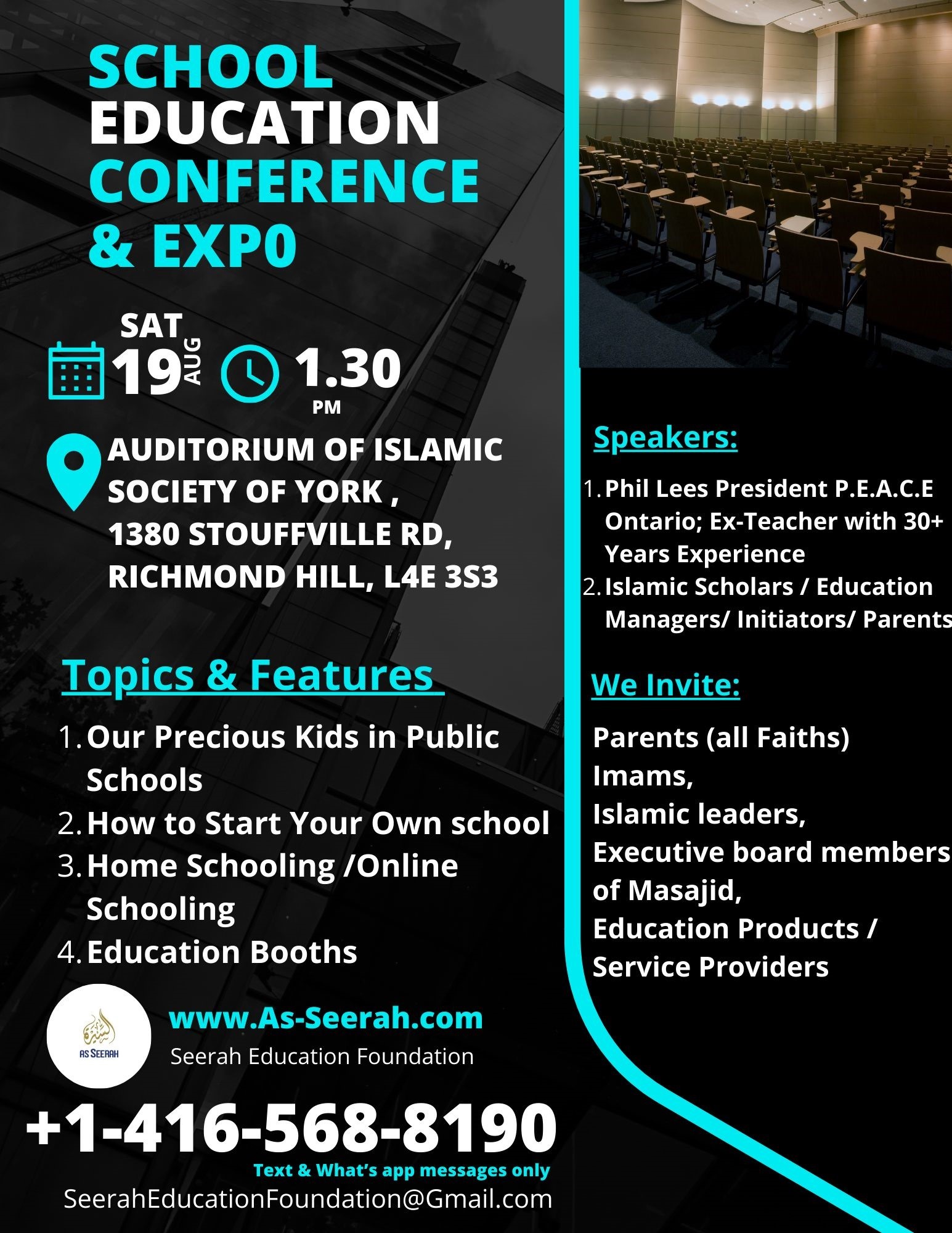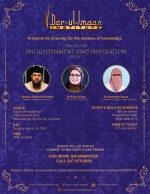JAWED ANWAR
First Published: Muslims Weekly, Issue No. 217, April 30, 2004
[This is a series of columns for the understanding of the history of Madrasa and Islamic Education System in Muslim India (South Asia) published in the Muslims Weekly, New York, USA, in the columns of "Personal Notes" by Jawed Anwar.)
The role of the teacher in the Islamic Education System is pivotal.
First, Allah requires us to seek knowledge actively. Remained ignorant is closer to sin.
Second, educating and sharing knowledge is Sunnah (tradition of the Prophet). "Narrated Abu Huraira R.A.: that the Messenger of Allah (ï·º) said: "Whoever is asked about some knowledge that he knows, then he conceals it, he will be bridled with a bridle of fire." Jami` at-Tirmidhi 2649
Those who decide to dedicate the life to the honourable teaching profession destine themselves into a divine field.
Teachers can change the hearts and minds of people. Their influence is tremendous. In a sense, the struggle of a teacher is more valuable than a Mujahid (warrior). Prophet Muhammad (PBUH) said, "The ink of Ulema (scholars and teachers) is better than the blood of a martyr soldier."
From our teachers, we learn the meaning of real success and failure. They instill higher values and polish the character of the students with good habits and etiquette. Teachers represent positive behaviours and attitudes. They also dare to stand against evils.
Teachers are educators, trainers, guides, role models, and symbols of the best character. They represent the better side of society. Prophet Muhammad (PBUH) declared, "The best among you (Muslims) are those who learn the Qur'an and teach it." (Sahih al-Bukhari 5027).
Abu Darda reported: The Messenger of Allah, peace and blessings be upon him, said, "The scholars are the successors of the prophets. Verily, the prophets do not pass on gold and silver coins, but rather they only impart knowledge." (Source: Musnad al-Bazzār 10/68)
Prophet Muhammad ï·º has also introduced himself as a teacher:
"Verily, I have been sent as a teacher." (Ibne Majah Book 1, Hadith 229)
The first human, Adam (AS) –the first Prophet of Allah, was sent as a teacher. Allah bestowed Adam (AS) with knowledge and intelligence. "And He taught Adam the names of all things" (Al Qur'an 2:32).
These concepts prove that education is worship; teaching and learning are a form of prayer, and both teachers and students are worshiping in the classrooms. In the thawab (the rewards in the hereafter), teachers and students are equal.
"The scholar and the seeker of knowledge will share the reward, and there is no good in the rest of the people." (Hadith: Ibn Majah 228)
All the creatures of the universe pray for the teachers. The cosmos is on the side of the teachers of good. The Messenger of Allah (ï·º) said: "Indeed Allah, His Angels, the inhabitants of the heavens and the earth - even the ant in his hole, even the fish - say Salat upon the one who teaches the people to do good." (Jami` at-Tirmidhi 2685)
Islam doesn't appoint any particular class, caste, family, or group for the teachers' designation. There is no white or black race, or Brahmin and Shudra in Islam.
In Islam, anyone can be a teacher. The only criterion for the teacher stated in a hadith is acquiring knowledge. "Acquire knowledge and teach it to the people" (Mishkat al-Masabih 279). And it is straightforward. It doesn't mean that a person is highly educated and learned before starting to teach. Islam began as an effective movement for education, a lifelong jihad (struggle). Everyone is supposed to participate in this movement. Prophet Muhammad s.a.w says: “Convey from me even an Ayah of the Qur'an.” (Bukhari. Ref. Riyad as-Salihin 1380). Islam encourages education by rewarding the educated people.
These principles of Islam revolutionized the concept of education and pedagogy.
Teaching is a profession, but it is also above what the career entails. Anyone who owns even the least amount of knowledge educates someone. Islam provides an education system that is easy and affordable for everyone.
With Allah's fear and accountability in the Day of Judgment, knowledgeable people were always ready to educate. They even enthusiastically sought students to educate and instruct. Instead of getting money or a salary, they were providing food, shelter and clothing to attract students. Even the kings and members of the government had been spending some time to teach the students;
Examples*:
1. The King, Sultan Tajuddin Firoz Bhamani (1397-1422), was a very learned person. He associated himself with noted Ulema and scholars of the time. He was an expert in various fields like arts, physical sciences, and mathematics. He was a dedicated instructor and taught at a local Madrasah three days a week (Saturday, Monday, Wednesday).
2. Qilich Khan, the father in law of Mirza Danial, son of Mughal emperor Akbar (1556-1605), was a high government official. In the period of his Governorship of Lahore, he had been teaching Tafseer, Hadith, and Fiqah, three hours daily in a Madrasah.
3. Before 1857 (the year of the last organized revolt against the British occupation of India), the British ruler of Rohilkhand established a college in the city of Bareilly. He offered Maulana Abdur Raheem (d.1818) of Rampur to teach in the college on a salary of Rs.250 (Rupees; Indian Currency). Maulana refused with different excuses, like, "I will lose my students, I will miss my home and the berries of my courtyards." But the British ruler insisted and said to give all facilities and fulfill all his requirements. At last, Maulana's excuse was, "What will be my plea on the day of judgment for getting the salary for teaching?" The British ruler had no answer for this excuse.
4. Shah Ulfat Hussain (d.1881) of Azeemabad; the present name of the city is Patna, in the state of Bihar, was the ambassador of Nawabs of Murshidabad in Calcutta in British India in the mid-nineteenth century. In his biography, his son Humayun Mirza writes;
"My father was very enthusiastic about teaching; students were punctual in his class. Daily, from 10 am to 2: 30 pm, he had been teaching students before going to his office in the afternoon."
After giving his commentary for this example, Maulana Munazir Ahsan Gilani, in his book "Taleem wa Tarbiyyat" (Education and Training), concluded, "This was the last knot of the burnt rope." (Burnt rope = the destruction of the Islamic education system by the occupying British powers.)
5. Dr. Lightener, the first principal of Oriental Collage Lahore (formed by British occupying power), witnesses and writes that Muslims were in the majority in the education. Most of the teachers taught for the sake of Allah and to get rewards from Allah.
6. Teachers never discriminated against Muslims and non-Muslim students. The late ex-President of India, the Hindu Dr. Rajendra Prasad (President: 1950 to 1962), writes in his biography, "I started my education at the home of a Muslim elite of Bihar, Khan Bahadur Nawab Shams ul Huda, a famous lawyer of Patna. I lived in his home and learned Arabic and Farsi languages."
7. With the fear of Allah and of being a culprit of not offering education to others, Ulema (scholars) was extremely conscientious and was educating their students even in extreme hardships. After the revolt of 1857, the British occupying soldiers arrested, charged, hanged, and deported thousands of Ulemas. They were the great scholars of the time. Few Ulema of Azeemabad (Patna, Bihar) took refuge in the plain of Nepal, and, to get halal earnings, they harvested the land by themselves. During the process of cultivation, with the help of oxen, they also conducted walking classes. Their students ran along with the teachers, with the open books in their hands, and getting lessons. These Ulemas had been carrying slingshots on their shoulders to pretend jihad against British occupiers.
8. Ulema were not silent even while imprisoned. The environment of the island of Andaman ("Guantanamo Bay" of that time) echoed the sounds of praise of Allah and His Prophet. The first book of biography of Prophet Muhammad (PBUH ) in the Urdu language "Tawareekh e Habeebullah" was written by Mufti Inayetullah Ahmed Kakorwi (1860) in the jail of Andaman. Maulana Fazlul Haq Khairabadi (1859) wrote the history of the revolt of 1857 against British occupiers, "Alsaurah Al Hindiya" in Arabic language, by coal (instead of ink and pen).
Ulema educated the community; they taught them to fulfill their responsibilities as vicegerents or Caliph of Allah on this earth.
Above mentioned examples show the quality and highness of the character of our Ulema, Maulvis, Mullahs (branded, stereotyped and accused by our ill-informed modern scholars).
In the thirteenth century, Mongols conquered Baghdad, the center of Abbasid Caliphs of Muslims of the time. In 1258, they seized and largely destroyed Baghdad. Mongols massacred and killed the caliph Al-MustaÊ¿á¹£im bi-'llÄh (Abd AllÄh ) and established their dynasty on peoples' corpse.
Hülegü Khan (1217-1265), a grandson of Genghis Khan, was crowned as the government's head. However, he did not have any other options to hire some Muslim ministers in their government. The reason: Muslims were intellectually superior to them and other nations at that time.
King Hülegü Khan hired Naseeruddin Muhaqqiq Tusi (d. 1274), a great scientist and scholar of the time, as his Prime Minister. He announced his education policy for the teachers:
"Up to 25 years of age, one has to engage in education as a student. From 25 to 40 years of age, one has to study and teach both. From 40 years to 50 years of age, one has to engage in teaching and writing books. From 50 to 60 years of age, one has to research and write books. And after 60 years, the teacher will be retired, and his salary will be doubled."
I challenge anyone to present an example from the so-called advanced, most modern and highly educated West closer to Muslims' erudite education policy and practices.
* Hind wa Pak mein Musalmanon ka Nizam e Taleem o Tarbiyat (Urdu), by Professor Syed Muhammad Saleem (b. 1920, d. 2000), the ex-president of Tanzeem e Usatza Pakistan, and ex Principal of Shah Waliullah Oriental College, Mansura, Sindh.
(Jawed Anwar can be reached at seerahwest@gmail.com)
Subscribe E-Letter:
AsSeerah+subscribe@groups.io
Twitter:
https://twitter.com/AsSeerah
Facebook:
https://www.facebook.com/Asseerah






